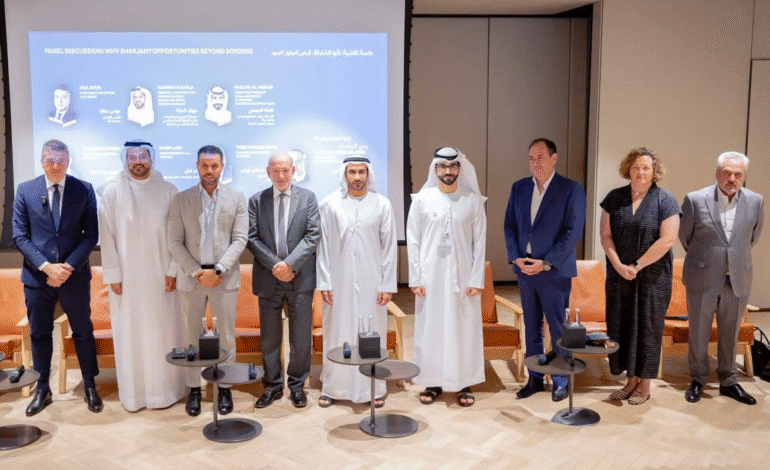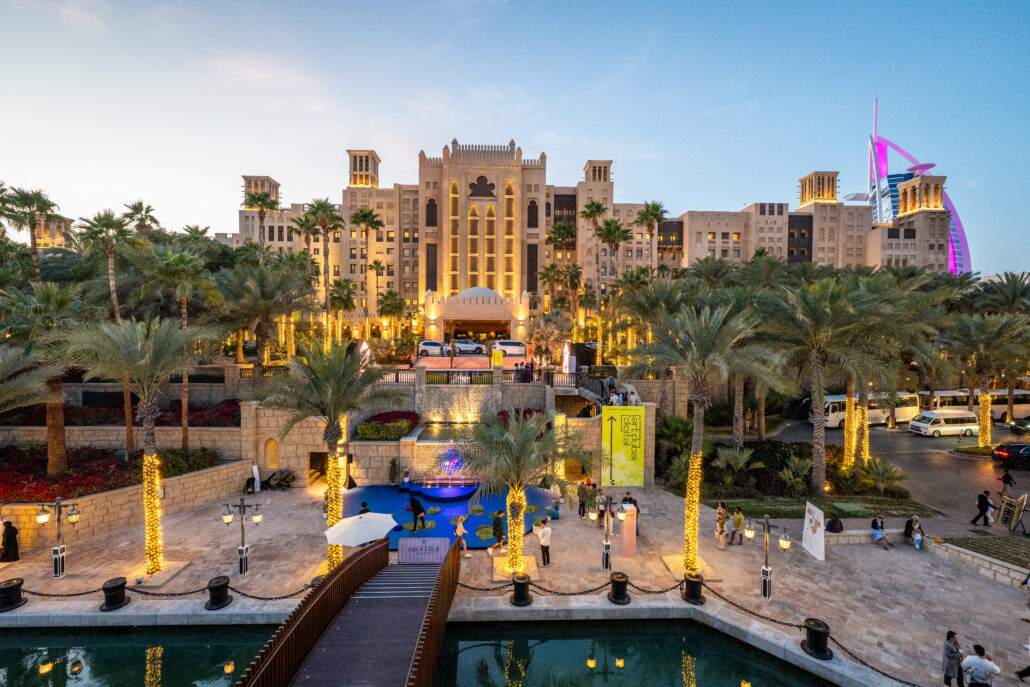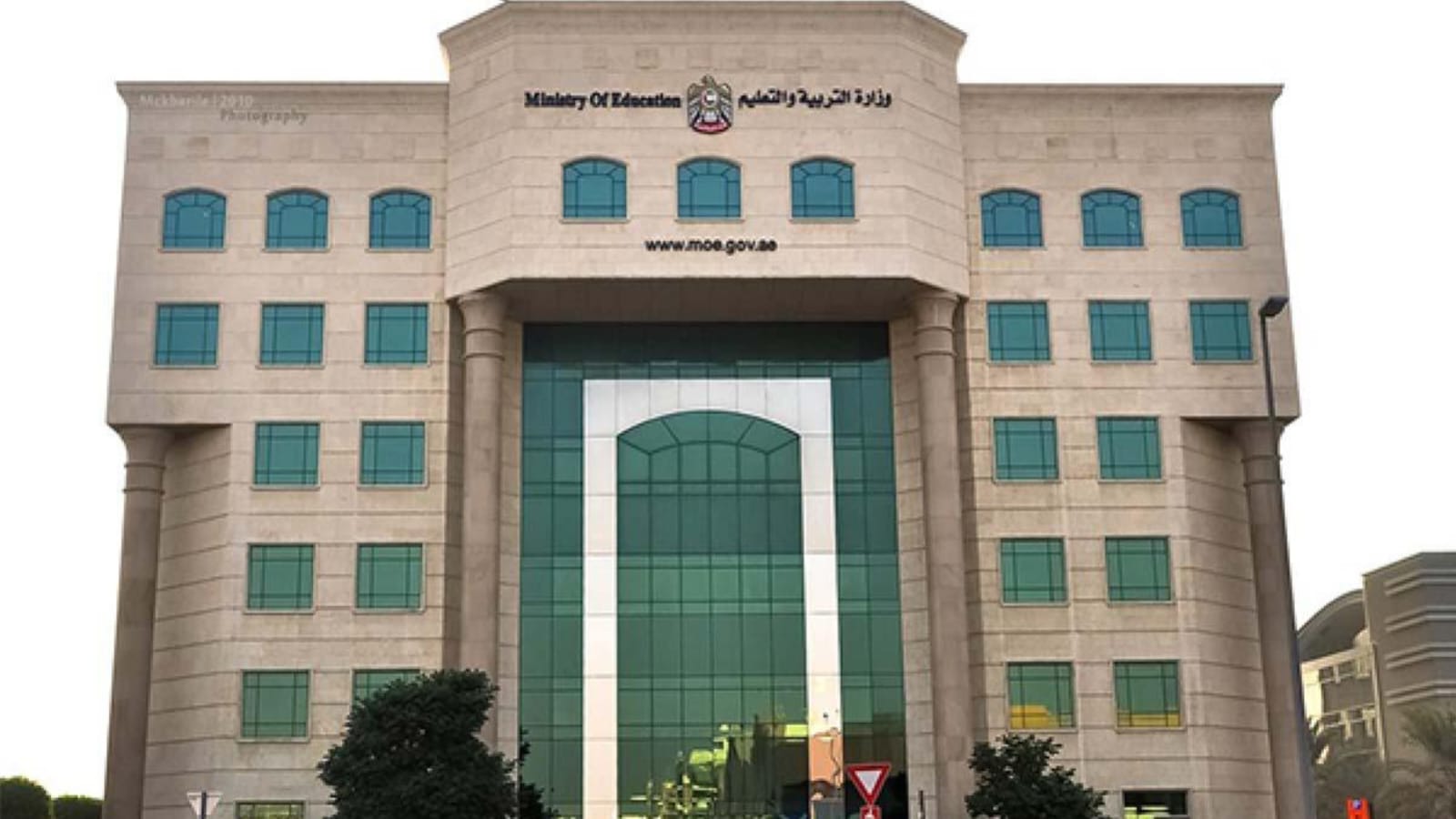As the United Arab Emirates and Mexico celebrate fifty years of diplomatic relations in 2025, a renewed chapter of economic cooperation is emerging between the Emirate of Sharjah and Mexican business communities. This evolving relationship was recently highlighted through the ‘Sharjah-Mexico Business Roundtable’, an initiative led by the Sharjah FDI Office, also known as Invest in Sharjah, in collaboration with the Mexican Business Council. The gathering took place at the House of Wisdom in Sharjah and was designed to explore mutual growth opportunities, foster dialogue, and chart new directions for investment in sectors such as small and medium enterprise (SME) financing, logistics, real estate, and automotive manufacturing.
This roundtable marked a pivotal moment in what both parties hope will become a dynamic and enduring partnership. With participation from prominent figures such as Luis Alfonso de Alba, Mexico’s Ambassador to the UAE; Mohamed Al Musharrkh, CEO of Invest in Sharjah; Rafael Villalona, President of the Mexican Business Council; and numerous investors and entrepreneurs from both sides, the discussions captured a shared vision rooted in innovation, private-sector empowerment, and sustainable economic development.
Fifty Years of Relations Mark a Promising Economic Milestone
The significance of this business roundtable cannot be overstated, as it serves as a key component of the golden jubilee celebrations commemorating half a century of UAE-Mexico relations. Both countries have developed strong diplomatic and cultural ties, but the increasing emphasis on economic cooperation represents a newer and rapidly growing dimension of this bilateral relationship.
Ambassador Luis Alfonso de Alba emphasized that Sharjah has played a central role in fostering stronger bonds between Mexico and the UAE. He recalled the Emirate’s presence as guest of honor at the 2022 Guadalajara International Book Fair, a cultural engagement that helped enhance mutual understanding. According to the Ambassador, such initiatives have built trust and laid the groundwork for deeper commercial exchanges. He stated that the current engagement signals “great potential to expand commercial ties between Sharjah and Mexico,” and stressed that the timing is optimal for initiating long-term business partnerships.
Sharjah’s Economic Ecosystem Offers Unmatched Investment Potential
In his keynote remarks, Mohamed Al Musharrkh, CEO of Invest in Sharjah, reflected on his past visits to Mexico as part of the UAE’s official economic delegation in 2018–2019. He highlighted the shared ambitions between Sharjah and Mexico, noting both regions’ strong orientation toward entrepreneurship, technological innovation, and sustainable development.
Al Musharrkh pointed out that Sharjah has witnessed growing interest from Mexican businesses. Currently, over 45 Mexican companies are operating in the Emirate, and in 2024, imports from Mexico to Sharjah reached AED 7 million. This trade flow demonstrates an increasing awareness of Sharjah’s potential as an investment destination for Latin American businesses seeking a reliable entry point to Middle Eastern, African, and South Asian markets. The Emirate’s infrastructure, investment incentives, and sectoral diversity offer an attractive environment for foreign investors aiming to scale across regions.
Opportunities Beyond Borders Explored Through In-Depth Discussions
A core component of the roundtable was a panel discussion titled “Why Sharjah? Opportunities Beyond Borders,” which featured insights from both Emirati and Mexican business leaders. The panel focused on the emirate’s competitiveness, sectoral expansion, and regulatory advances designed to stimulate foreign investment.
One of the standout speakers, Issa Ataya, CEO of Alef Group, highlighted Sharjah’s real estate sector as a key area of economic activity. According to him, the market recorded a 31.9% year-over-year growth in transactions, reaching AED 13.2 billion ($3.6 billion) in the first quarter of 2025. This surge was attributed to new property laws allowing full foreign ownership in designated zones. As a result, there has been a 25.3% rise in foreign investor participation, totaling over 3,700 investors. Projects like Hayyan and Al Mamsha were cited as examples of the lifestyle-driven real estate developments that reflect the Emirate’s innovative urban planning.
Ataya underscored that such projects are not just about buildings—they represent integrated communities designed to meet international standards, making them appealing to investors from diverse backgrounds.
Empowering Small and Medium Enterprises Through Financial Support
Complementing the real estate discussion, Khaleefa Al Hosani, Senior Vice President of SMEs at Emirates Development Bank, presented the tools and services designed to support startups and SMEs in Sharjah. These include loan programs tailored to specific sectors, credit guarantees, and partnerships that enable access to capital and mentorship.
Al Hosani explained that Sharjah’s business ecosystem acts as a growth platform for entrepreneurs across industries like manufacturing and renewable energy. The emphasis on innovation and scaling has attracted ventures not only from the Middle East but also from Latin America, where many businesses are exploring regional expansions. The bank’s approach focuses on building long-term resilience and capability among SMEs, helping them transition from local ventures to international success stories.
Strategic Location and Connectivity Enhance Sharjah’s Appeal
Further expanding on the emirate’s offerings, Marwan Alichla, Director of Investment Promotion & Support at Invest in Sharjah, discussed the region’s geographic and economic positioning. Sharjah’s strategic location offers unparalleled connectivity to major global markets, supported by world-class ports, free zones, and logistical infrastructure.
Alichla also highlighted recent innovations in business services, such as the AI-powered trade license system that enables entrepreneurs to secure licenses within just five minutes. Such digital tools not only improve efficiency but also reflect the Emirate’s commitment to becoming a smart, agile, and investor-friendly hub.
He drew attention to economic zones like Hamriyah Free Zone and Sharjah Research Technology and Innovation Park, which serve as centers for industrial development and cross-border collaboration. These hubs are playing an increasingly vital role in building technology-based partnerships with firms from Latin America, Asia, and Europe.
Mexican Entrepreneurs Recognize UAE’s Regional and Global Role
The dialogue then moved toward insights from Mexican entrepreneurs and business leaders who shared their perspectives on working in the UAE and their aspirations for future collaboration.
Sergio De La Vega, CEO of Supercool, a firm focused on energy and mobility solutions, explained that the UAE’s role as a global leader in renewable energy offers a natural synergy for companies in similar sectors. He noted the country’s investment in solar power and energy storage as a testament to its long-term vision. According to him, such an environment provides fertile ground for innovation and strategic growth.
Tirso Fidalgo Arias, CEO of Metatron, offered logistical insights from his business operations, pointing out that Sharjah serves as a highly efficient logistics hub. Shipping timelines from Mexico to China traditionally take several months, but with a base in the UAE, companies can reach the same markets in as little as two weeks. This reduction in time and cost significantly enhances competitiveness for exporters and supply chain-driven businesses.
Culinary Diplomacy Builds Cultural and Agricultural Bridges
An unexpected yet meaningful contribution came from Shaw Lash, chef and co-founder of Lila Taqueria. She brought a culinary lens to the conversation, discussing how Mexican cuisine serves as a soft power tool that facilitates business and cultural exchanges. Her restaurant sources organic produce from UAE farms, demonstrating how food and agriculture can bridge commercial and cultural divides.
Lash also emphasized the adaptability of Mexican food in the local context, showcasing how gastronomy can support broader agricultural cooperation between the two regions. This includes knowledge sharing, supply chain integration, and the promotion of sustainable farming practices.
Collaborative Roadmap for Future Investment and Innovation
As the roundtable came to a close, there was a strong consensus on the vast opportunities that lie ahead. Participants expressed optimism about the potential for growth, collaboration, and mutual benefit. The discussions made it clear that while Sharjah and Mexico are geographically distant, they are strategically aligned through a shared commitment to sustainable development, technological innovation, and cross-regional business collaboration.
The momentum generated by this event signals the beginning of a broader and more structured engagement between Sharjah and Mexico. By focusing on high-impact sectors such as automotive manufacturing, logistics, real estate, and SMEs, both parties are well-positioned to turn potential into progress.
Ultimately, the ‘Sharjah-Mexico Business Roundtable’ laid the foundation for a dynamic economic relationship grounded in mutual interests, cultural respect, and forward-looking strategies. As both nations look to the next 50 years of collaboration, they are building a blueprint for cross-continental cooperation that prioritizes innovation, resilience, and prosperity.









1 Comment
[…] a breathtaking display of grit, passion, and strategic brilliance, Mexico triumphed over the United States in the Concacaf Gold Cup 2025 Final, held at the iconic NRG […]
Comments are closed.